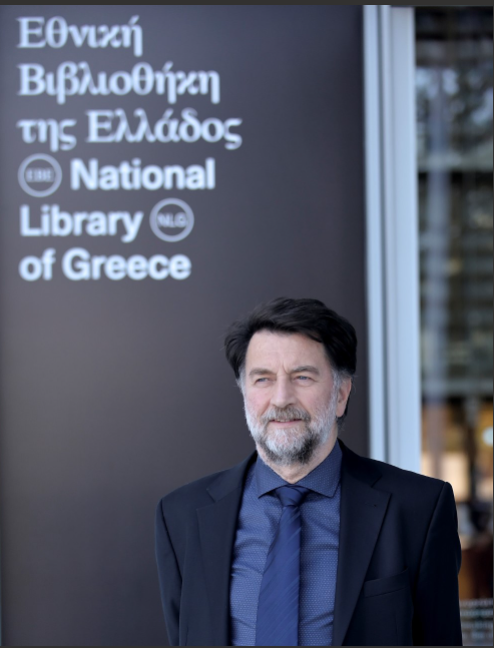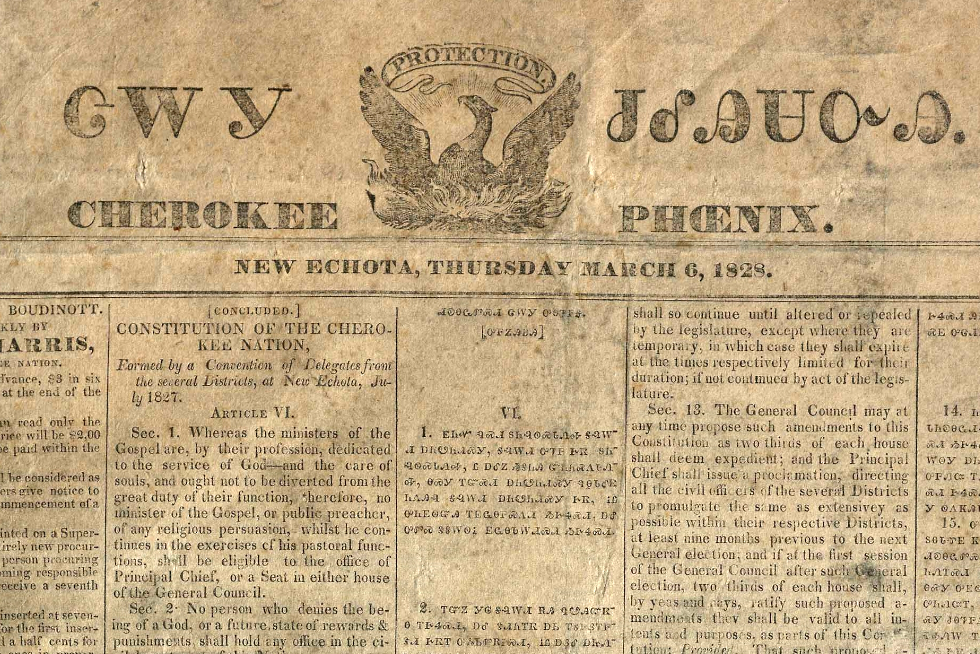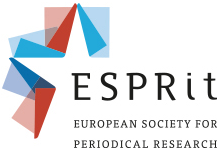ESPRit online seminar 8 April 2022
 We are very pleased to announce that Dr Filippos Tsimpoglou, General Director of the National Library of Greece will launch the Third ESPRit Online Seminar Series, on the general theme ‘Sources Beyond the Periodical Text’. The opening lecture will be held on 8 April, 2022 at 3PM CET via Zoom.
We are very pleased to announce that Dr Filippos Tsimpoglou, General Director of the National Library of Greece will launch the Third ESPRit Online Seminar Series, on the general theme ‘Sources Beyond the Periodical Text’. The opening lecture will be held on 8 April, 2022 at 3PM CET via Zoom.
‘Expanding the services of the National Library of Greece to researchers, public, libraries, society and next generations’
In 2014 the National Library of Greece started a transformation process with an annual budget of 240.000€, 47 employees as permanent staff, absolutely the smallest among 38 European National Libraries and a total area of about 9.000 sq.m. in three buildings full of printed material. After a period of three years of preparation, the NBE completed the relocation of most of its services to the new premises of the SNFCC, a building donated to the Hellenic Republic by the SNF and home to three different organisations: NLG, NGO and SNFCC.
In eight years, despite the tight and difficult environment of austerity and cost-cutting measures under the Memorandum, the EBE has managed to secure some of the conditions and develop several of the basic infrastructures that characterize a National Library. Thanks to a donation from the SNF and the steady support of the Greek state, its budget reached the average of the national libraries of the "small" European countries (6.700.000€) and its staff was half the average (80 permanent and 75 seconded teachers) located in four buildings of totally 31.000 sq.m..
The NLG, taking advantage of the new modern legislative framework (Law 4452/2017), has submitted the new Management and Operating Organization and drafted the Strategic Plan 2022-2026 that develops three axes of actions of the NLG: a) the completion of all services that are considered crucial for the fulfillment of the mission of a modern national library at levels corresponding to the high position and value recognized over time in Greek civilisation. b) consolidation of the Hellenic Library as the leading library of the country, through actions and support projects for the development of the Hellenic Library Ecosystem at levels corresponding to the development of contemporary Greek culture. c) promotion of the Hellenic Library as an unrivalled centre of support for Hellenic Studies internationally.
Τhe communication presents the panorama of services and actions that the EBE has carried out.
Chair: Professor Aled Jones, historian and former National Librarian of Wales
The event is free and open to anyone interested to attend. Please register here to receive the Zoom link .
Half-Day Workshop on Multilingualism and Periodical Studies
The European Society for Periodical Research in conjunction with the Research Society for Victorian Periodicals is excited to announce
Multilingualism and Periodical Studies. A Half-day Virtual Workshop
31 March 2022, 3pm-6pm CET

This two-part online workshop brings together scholars and researchers on the topic of multilingualism in periodicals scholarship. It seeks to spotlight ongoing projects in academic research across languages, as well as to ask questions about the challenges and possibilities that pertain to multilingual approaches.
Because of their generic hybridity and varying circulations, periodicals have always invited interdisciplinary methods, which our participants expand into the study of periodicals’ linguistic richness. Periodicals define far more intricate political imaginaries and publics than just the nation. Their linguistic complexity and language circulation work within as well as across political formations at various scales. And the geographic and generic reach of periodicals calls for scholars to research them with just as capacious an approach.
“Multilingualism and Periodicals Studies” brings together representatives from multiple disciplines and international arenas. The half-day workshop includes two 90-minute virtual sessions. It begins with a session of research presentations about active projects in the field, followed by a roundtable discussion among participating scholars and our audience. The workshop is jointly hosted by the Research Society for Victorian Periodicals (RSVP) and the European Society for Periodical Research (ESPRit).
The event is free and open to anyone interested in attending either one or both sessions. Membership in RSVP and ESPRit is not required, though advance registration is needed. Register for the event here.
Confirmed Speakers
Research Presentations
- Dr. Lucía Campanella, Universidad de la República, Uruguay
- Dr. Eloïse Forrestier, Ghent University, Belgium
- Sara Hernández Angulo, Washington University in St. Louis, USA
- Jana Keck, German Historical Institute, Washington, USA
- Dr. Sara Marzagora, King’s College London
- Dr. Lindsay Wilhelm, Oklahoma State University, USA
Roundtable
- Dr. Meghan Forbes, University of Iowa
- Prof. Aled Gruffydd Jones
- Prof. Sukeshi Kamra, Carleton University, Canada
- Assoc. Prof. Klaudia Lee, City University of Hong Kong
- Prof. Michelle Prain Brice, Universidad Adolfo Ibáñez, Chile
- Prof. Marianne Van Remoortel, Ghent University, Belgium
ESPRit Postgraduate Workshop, Budapest 2022
Call for Papers
In conjunction with the 10th International Conference of the European Society for Periodical Research (ESPRit), entitled Periodicals beyond Hierarchies: Challenging Geopolitical and Social “Centres” and “Peripheries” through the Press (Budapest, 8–9 September 2022, see the corresponding CfP), a hybrid postgraduate workshop will be held on 7 September 2022. We seek applications from graduate students working on any topic with regard to periodicals from any historical period, geographical origin, and cultural context. The workshop is open to postgraduate students working in any discipline in the humanities and social sciences and using any methodology or approach. Priority will be given to advanced doctoral students, but applications by graduate students at any stage of preparation of their dissertation will also be considered. Personalised feedback will be offered by a committee comprising ESPRit members and members of the Museum of Fine Arts – Central European Research Institute for Art History (KEMKI) – Artpool Art Research Center and the Kassák Museum. Participants of the workshop will have their conference fee waived. Further funding for travel expenses and accommodation will be taken into consideration, under request.
To apply, please send:
- a 500-word abstract of the thesis to be presented. Workshop presentations last generally 10 minutes. In order for the Workshop to be useful to all participants what should be stressed is specific methodological points pertaining to periodical studies, rather than just case studies. These can of course be an outcome of the PhD candidate’s research area or PhD subject.
- a short CV (150 words) including name, institutional affiliation, and year of PhD. The academic CV should include the candidate’s studies, interests, and possible distinctions and publications.
Proposals should be received by the organisers no later than 28 February 2022.
We look forward to welcoming you to the Central European Research Institute for Art History, Budapest!
Contact: This email address is being protected from spambots. You need JavaScript enabled to view it.
ESPRit online seminars: Sources beyond the periodical text
We are pleased to announce that the ESPRit online seminar series, initially launched in March 2020, will shortly enter its third series. The first two focused on ‘Crossover influences and local identities in the popular illustrated periodicals of the 19th and twentieth centuries’, and consisted of a combination of stimulating keynote addresses and fascinating 20 minute papers across a range of subjects.
The third series takes as its general theme ‘sources beyond the periodical text’. It will consist of the following contributions:
Friday 8 April, 3PM CET:
Opening lecture by Filippos Tsimpoglou (Director General of the National Library of Greece), ‘Expanding the services of the National Library of Greece to researchers, public, libraries, society and next generations’ More information
13 May, 3PM CET:
- Zsuzsa Török (Research Centre for the Humanities, Institute for Literary Studies, Budapest), ‘Sources for Anonymous Contributors to Periodicals: The Case of the Hungarian Stephanie Wohl and The Scotsman’
- Levente T. Szabó (Babeș-Bolyai University), ‘Reconstructing the Entangled History of the First International Journal of Comparative Literary Studies’
17 June, 3PM CET:
- Nora Ramtke (Ruhr-Universität Bochum), ‘Europa (1835-1844) and its Supplements: Archiving the Abundance’
- Hannah Connell (King’s College London and British Library), ‘Uncovering the relationships between periodicals through editorial correspondence: Networks of Russian-language emigre periodicals in interwar Paris’
Please click here to register for the online seminar series. We will send you the Zoom link via e-mail.
10th International ESPRit Conference (Budapest, 2022)
Call for Papers 10th International ESPRit Conference
Periodicals beyond Hierarchies:
Challenging Geopolitical and Social “Centres” and “Peripheries” through the Press
Time and venue: 7– 9 September 2022, Museum of Fine Arts – Central European Research Institute for Art History (KEMKI) – Artpool Art Research Center, Budapest, Hungary. The hybrid event is co-organized with the Petőfi Literary Museum (PIM) – Kassák Museum.
Scientific committee: Gábor Dobó (PIM–Kassák Museum); Dávid Fehér (KEMKI); Emese Kürti (KEMKI – Artpool Art Research Center); Eszter Őze (KEMKI – Artpool Art Research Center); Evanghelia Stead (UVSQ Paris-Saclay); Merse Pál Szeredi (PIM – Kassák Museum).
Contact persons: Gábor Dobó (This email address is being protected from spambots. You need JavaScript enabled to view it.), Merse Pál Szeredi (This email address is being protected from spambots. You need JavaScript enabled to view it.), and Eszter Őze (This email address is being protected from spambots. You need JavaScript enabled to view it.).
For the first time in East-Central Europe, the European Society for Periodical Research (ESPRit) convenes its 2022 (10th) international conference in Budapest, Hungary, to focus on the following theme: Periodicals beyond Hierarchies: Challenging Geopolitical and Social “Centres” and “Peripheries” through the Press.
The conference should reflect on how periodicals challenge, transform or interpret the notion of “centres” and “peripheries” in a context of permanently shifting and historically unstable situations. Papers should investigate these questions through essential forums of the public sphere, namely periodicals, from the mid-18th century to the present day. The generation of knowledge, social dialogue, and transnational communication (both textual and visual) hosted by periodicals gave visibility and platforms to politically and economically “peripheral” areas, as well as socially marginalized groups. At the same time, other journals provided means to maintain cultural and political hegemony of “central” social classes or global powers.
We invite scholars to reflect on the ways periodicals represented, created, maintained, or challenged, even deconstructed the notions of “centre” and “periphery” as related to the status of their community, audience, editorial board or geographical areas.
We are particularly interested in encounters, and negotiations between geopolitical or social “centres” and “peripheries” taking place in periodicals. The conference should focus on matters, including but not limited to, such as:
- Theoretical reflections on “centres” and “peripheries” and the possible contribution of Periodical Studies to define the shifting meaning of this conceptual model
- Circulation, adaptability and reworking of periodical models and genres, including the mainstream press; middlebrow periodicals and “little magazines”
- Hybridity, performativity, materiality – how researching periodicals opens up new perspectives in literary, art and media history?
- Shifting, emerging, and declining geopolitical centres and the press, from the Napoleonic wars to the end of the Cold War and beyond
- Challenging the concept of “Eastern”, “Western”, “Southern” and “Central” – the periodicals in the entangled history in Empires – from a post-Empire perspective
- Colonization, decolonization, and the periodicals – a postcolonial perspective
- The effect of dominant discourses on marginal/”peripheral”/”provincial”/local contexts – and vice versa.
- The role of journals in social conversation, including the voice of marginalized groups in/out of/against the mainstream press: the rise of counter-publics in periodicals
- The diachronic and political dimension of artistic canons, and the role of periodicals in canonizing, theorizing, and financing art and culture
- De-centring established cultural “centres” through a transnational network of “little magazines”. Establishing “imagined communities” (a term coined by Benedict Anderson) in periodicals
The working language of the conference is English. We welcome proposals from researchers at all stages of advancement. Proposals of around 250 words (references not included) for 20-minute papers and a short CV (no more than 200 words) should be sent to This email address is being protected from spambots. You need JavaScript enabled to view it. by February 28 2022. We also welcome proposals for joint panels of three papers. Please include a brief rationale for the panel along with an abstract and CV for each presenter. Updates can be found on the 10th ESPRit Conference website, forthcoming.
We look forward to welcoming you to the Central European Research Institute for Art History, Budapest!
